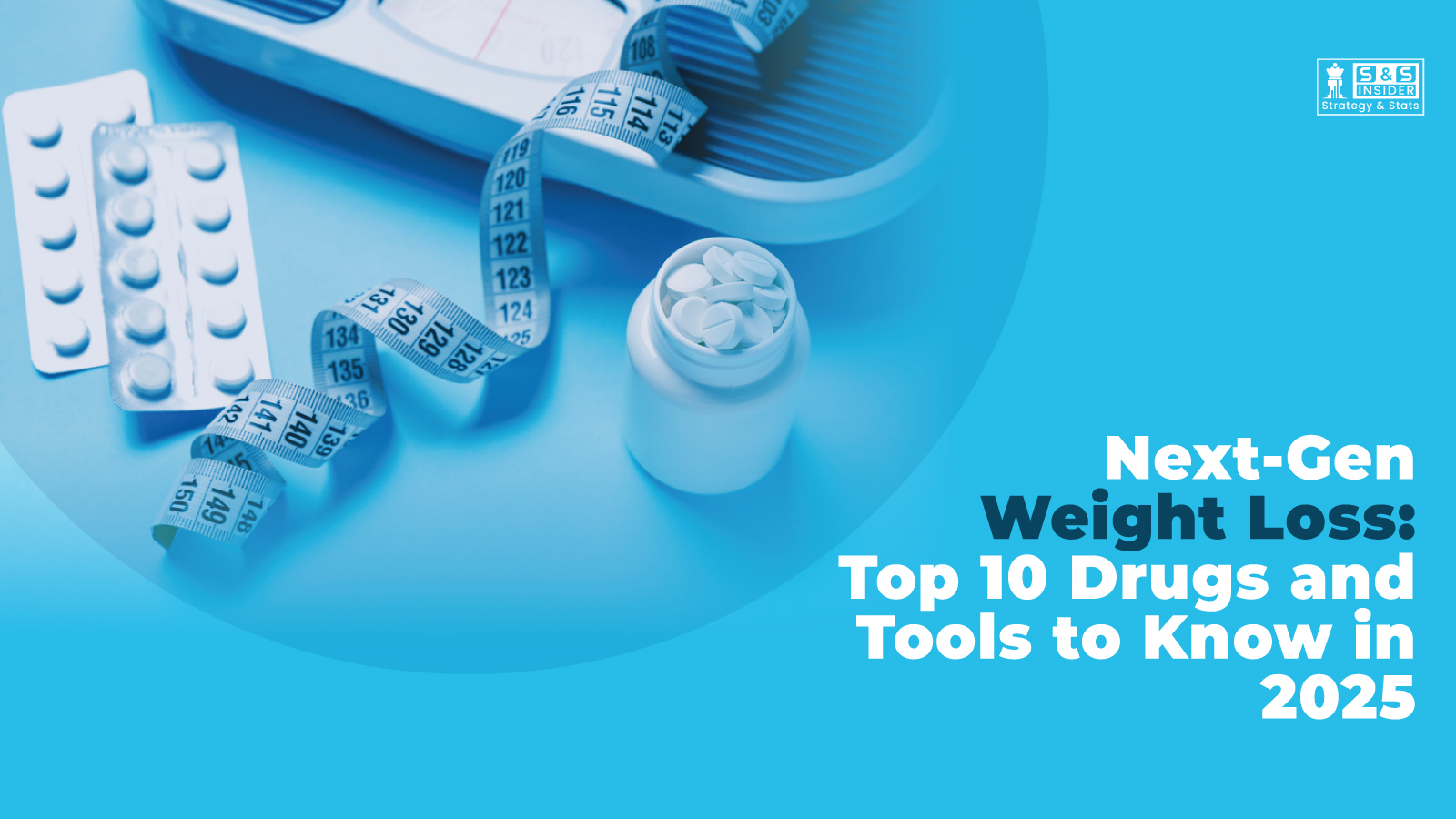
The introduction and approval of extremely successful weight reduction medications in 2025 will be a groundbreaking year in the quickly changing field of obesity therapy, altering many people's approaches to weight control. These weight loss drugs provide effective supplements to conventional treatments for people who are overweight. Additionally, by offering a variety of choices, weight reduction aids and supplements enhance these therapies. The top ten weight loss medications for 2025 are examined in detail, along with how they are changing the weight reduction process in conjunction with weight loss aids and supplements.
1. Tirzepatide (Zepbound)
In 2025, tirzepatide, marketed under the Zepbound brand, is the most successful FDA-approved medication for weight loss. This weekly injectable drug lowers hunger and enhances metabolic health by acting as a dual GIP and GLP-1 receptor agonist. Clinical trials reveal an average reduction in body weight of up to 22.5% over 72 weeks, outperforming the efficacy of earlier medications. It treats obesity holistically by improving metabolic and cardiovascular indicators in addition to weight loss.
2. Semaglutide (Wegovy)
Another well-liked and successful weight-loss injectable is semaglutide, a GLP-1 receptor agonist marketed under the brand name Wegovy. Clinical investigations have shown that it can reduce weight by up to 14.9% on average when taken once a week. Additionally, semaglutide improves heart health by lowering the risk of cardiovascular events in obese individuals.
3. Liraglutide (Saxenda)
One common injection for weight loss is ligarglutide, which is administered once daily and often results in weight loss of 8%. It is a good choice due to its convenience and safety profile, even though it is marginally less effective than more recent medications, such as tirzepatide and semaglutide.
4. Phentermine and Phentermine-Topiramate (Qsymia)
One of the earliest medications for weight loss that is still frequently recommended is phentermine, which comes in a variety of forms, such as Adipex and Lomaira. Qsymia, when taken with topiramate, improves appetite control and causes weight reduction of 7% to 11%. For individuals who suffer from obesity in addition to other ailments like migraines, the combination is particularly helpful.
5. Naltrexone-Bupropion (Contrave)
With an average weight loss of 5% to 9%, this oral combination reduces appetite and cravings by influencing the central nervous system. It provides a weight-management alternative that is not injectable.
6. Orlistat (Xenical, Alli)
Orlistat functions by preventing fat from being absorbed through the intestines. It is an oral drug that is taken with meals three times a day. Due to its distinct mechanism and availability in both prescription and lower-dose over-the-counter formulations, it continues to be a popular choice even if its weight reduction results are not as significant as those of GLP-1 agonists (Alli).
7. Setmelanotide (Imcivree)
This once-daily injection is approved for weight loss in people with specific rare genetic disorders that affect weight regulation. Though not for general obesity, it represents advancement in personalized weight loss medications.
8. Mazdutide
Still undergoing phase 3 trials, mazdutide is a promising injectable GLP-1 agonist currently studied for weight loss and type 2 diabetes. Early data suggests it may promote weight loss of around 15% after six months, potentially adding another powerful option once approved.
9. Bimagrumab
Bimagrumab is a novel biologic medication targeting fat reduction and muscle mass increase. It works via activin receptor blockage and has shown promising results, including 20% reduction in body fat mass in study participants. This drug is under phase 2 study and may soon enter the market with a unique approach to weight management.
10. Hydrogel (Plenity)
Although Plenity is an FDA-approved medical device rather than a medicine, it is nevertheless worth mentioning. Some overweight adults are administered this oral capsule, which expands in the stomach to encourage fullness. 60% of users lost at least 5% of their body weight, according to clinical trials. Plenity is a prime example of the expanding class of weight loss gadgets that work mechanically rather than pharmacologically, even if the maker has apparently discontinued it.
Complementary Weight Loss Devices and Supplements:
Many patients combine prescription weight reduction medications with weight loss devices and supplements, even though these medications make up the majority of medical treatment options.
Weight loss tools that can decrease stomach volume or improve satiety include gastric balloons and more recent ingestible capsules (Plenity). These devices provide non-surgical ways to improve weight loss.
In 2025, green tea extract, garcinia cambogia, and caffeine-based supplements will be popular choices. In order to optimize outcomes safely, these weight loss supplements are commonly taken in conjunction with pharmaceuticals under a doctor's supervision. They assist appetite management and metabolism.
A Holistic Approach to Weight Loss:
Successful long-term weight loss in 2025 increasingly relies on combining cutting-edge weight loss drugs with lifestyle modifications including diet, exercise, and behavioral therapy. Weight loss devices and supplements provide additional layers of support, tailoring treatments to individual needs and preferences.
With the dramatic advances seen in medications including tirzepatide and mazdutide, combined with innovative devices and supplements, the future of weight management holds more promise than ever. Healthcare providers can now offer a personalized, multi-pronged approach that improves patient outcomes and quality of life.